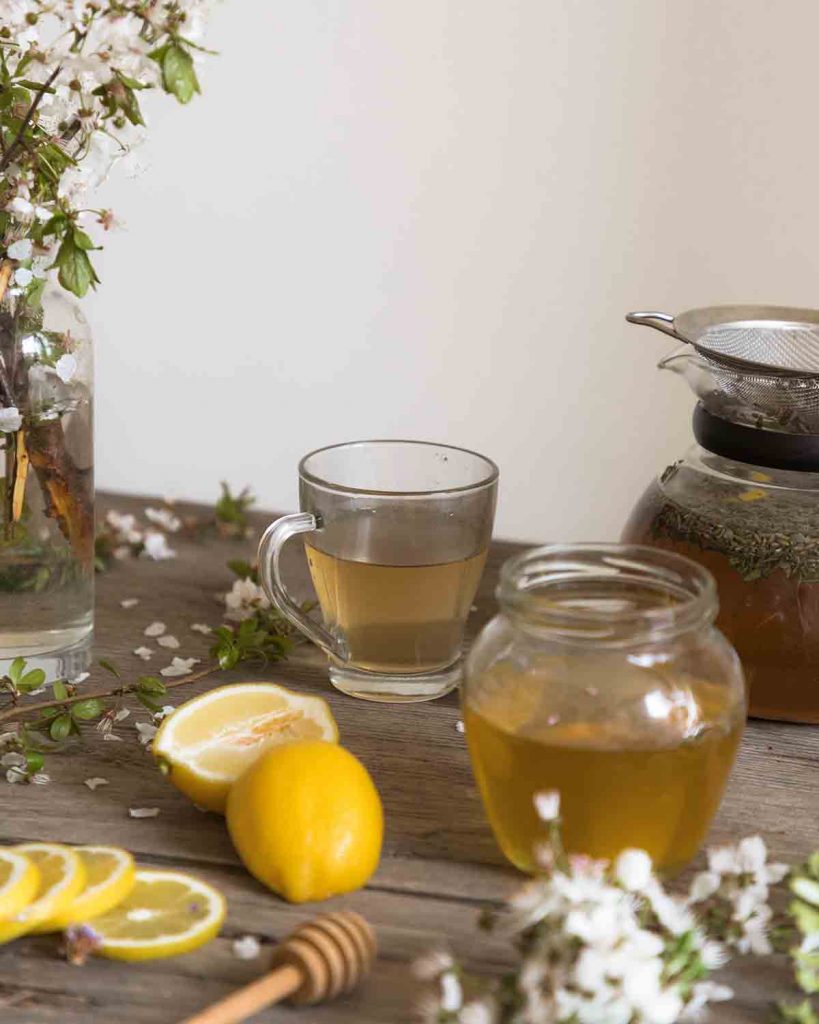Many of us in the UK suffer from hay fever, and we’re always looking for ways to alleviate the symptoms. However, did you realise that you might be eating lots of foods that are making hay fever affect you even more, as our diet influences our allergies? Margo Marrone, Co-Founder of The Organic Pharmacy, shares the foods you should cut out to reduce your hay fever.
Most of us in Britain spent the entirety of the rainy, cold spring counting down the days until summer. But, now that it’s here, many people are finding that hay fever is getting in the way of them enjoying the sunny weather.
Hay fever is extremely common across the UK, affecting up to 37% of adults, while 57% of these people also report dealing with sleep problems because of the symptoms (AllergyUK). The prevalence of hay fever, as well as the intensity of symptoms, is expected to get worse over the coming years, too. This is because climate change is predicted to change the potency of pollen during the British summer, and the hay fever season is expected to last for more months of the year (GOV.UK)
So, what can you do to reduce your hay fever symptoms? Well, some foods can exacerbate allergic reactions, and so one way that you can control your allergies more throughout the pollen season is by cutting out the foodstuffs that particularly aggravate your symptoms.

1. Alcohol
Summer is prime time for having drinks with your pals, but cutting out alcohol is one way to reduce your hay fever sniffles. This is because many types of booze contain histamines. These are chemicals that your immune system produces, and their purpose is to try to get rid of a substance that is causing an allergic reaction in your system — for example, pollen, dust mites, or cat dander. So, consuming too much alcohol can add more histamines to your system, making allergies worse.
Many types of alcohol also contain sulphites that can worsen symptoms (netdoctor). The best tipple to go for if you’re trying to minimise your allergies is one containing vodka or gin. These spirits contain less histamines than other forms of alcohol, and they also make perfect summer drinks!
2. Coffee
Unfortunately, if you’re trying to avoid worsening your summer sneezes, it’s best to avoid coffee. While it’s a reliable way to give yourself a pick-me-up in the morning, it also triggers the release of lots of histamines in your body. Coffee can also cause liver congestion, which increases the severity of allergic reactions (netdoctor).
If you want a drink that counters your symptoms, rather than exacerbates them, try a cup of chamomile tea. While it doesn’t contain caffeine, it does clear excess mucus brought on by hay fever, and helps keep sinuses clear. Energy boosting supplements can help you stay awake naturally without caffeine, so you can avoid the allergy-worsening effects of coffee.
3. Chocolate
You might not think about how your chocolate bar is affecting your hay fever, but chocolate is another food that triggers the release histamines in your body. Refined sugar can also cause a blood sugar spike, which in turn will make your body release histamines (netdoctor). You can combat that sugar craving with a more natural alternative like dried fruit, which will avoid the quick blood sugar spike and still give you an energy boost.
4. Dairy
Bad news for cheese lovers: all types of dairy can make hay fever symptoms worse. This is because consuming dairy foods increases mucus production in your body, meaning that when you have an allergic reaction, it’s more severe. This makes it more difficult to get rid of that blocked nose throughout the day.
Aged cheese is particularly bad for hay fever sufferers, as it both increases mucus production, and contains histamines. The histamines are produced by bacterial microbes, which grow on the rind of aged cheese to help it ripen (scientific reports). While the rind protects the cheese from harmful pathogens and is an important part of the ageing process (and the flavour!) it also means that cheese is one of the worst foods for hay fever sufferers.
There are however lots of dairy-free products on the market now, so you can still have yoghurt, some desserts, and cheese, without triggering your allergies. Try out some dairy-free options, and leave the cheese board for the winter months.
5. Fermented foods
While fermented food have many health benefits — such as being good for your digestive system — they can actually make allergy symptoms worse. This is because the bacteria that is grown throughout the fermenting process has a similar affect to the bacteria grown on the rind of aged cheese. The bacteria that produces the amazing flavour of fermented foods also brings with it lots of histamines, which will make reactions worse.
So, when the pollen count is high, avoid foods such as sauerkraut, yoghurt, vinegar, canned fish or kimchi. Save these for when the weather is cooler.
There is so much advice online about reducing hay fever symptoms, and what medication to take when you do have symptoms. But with these simple dietary tips, you can cut out anything you might be eating that is exacerbating your allergic reactions. Try replacing these foods with other things that you enjoy, and see if the lower histamine count helps you through the summer.
Photography by Jovan Vasiljević, Words Margo Marrone, Co-Founder of The Organic Pharmacy




